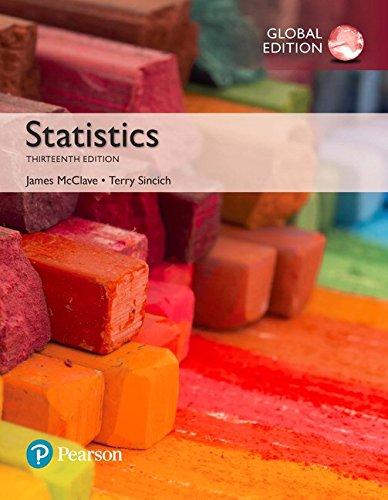Ethical sensitivity of teachers toward racial intolerance. Many high schools have education programs that encourage teachers to
Question:
Ethical sensitivity of teachers toward racial intolerance.
Many high schools have education programs that encourage teachers to embrace racial tolerance. To gauge the effectiveness of one such program that utilizes two videos of teachers engaging in racial stereotypes of their students, researchers recruited 238 high school professionals LO5
(including teachers and counselors) to participate in a study (Journal of Moral Education, Mar. 2010). Teachers watched the first video, then were given a pretest—the Quick-REST Survey—designed to measure ethical sensitivity toward racial intolerance. The teachers next participated in an all-day workshop on cultural competence. At the end of the workshop, the teachers watched the second video and again were given the Quick-REST Survey (the posttest). To determine whether the program was effective, the researchers compared the mean scores on the Quick-
REST Survey using a paired-difference t-test. (Note: The higher the score on the Quick-REST Survey, the greater the level of racial tolerance.)
a. The researchers reported the sample means for the pretest and posttest as 75.85 and 80.35, respectively. Why is it dangerous to gauge the effectiveness of the program based only on these summary statistics?
b. The paired-difference t-test (posttest minus pretest)
was reported as t = 4.50 with an associated observed significance level of p-value 6 .001. Interpret this result.
c. What assumptions, if any, are necessary for the validity of the inference, part b?
Step by Step Answer:






